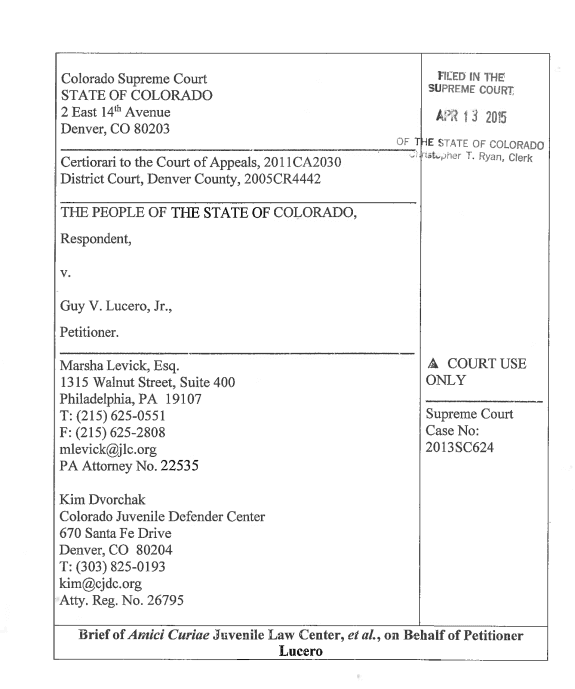
Summary of Argument
In 2010, the U.S. Supreme Court held in Graham v. Florida, 560 U.S. 48 (2010) that life without parole sentences for juvenile offenders committing nonhomicide offenses violate the Eighth Amendment's ban on cruel and unusual punishments. The Court explained: “The juvenile should not be deprived of the opportunity to achieve maturity of judgment and self-recognition of human worth and potential. . . . Life in prison without the possibility of parole gives no chance for fulfillment outside prison walls, no chance for reconciliation with society, no hope.” Id. at 2032. Graham held that a sentence that provides no “meaningful opportunity to obtain release” is unconstitutional. Id. at 2033. Petitioner Guy V. Lucero was convicted of nonhomicide offenses that he committed as a juvenile and received a sentence of 84 years that requires him to serve 42 years before he is parole-eligible. Because Mr. Lucero’s sentence deprives him of a “meaningful opportunity to obtain release,” it is the functional equivalent of life without parole and is unconstitutional despite being labeled as a term-of-years sentence. This Court should follow the U.S. Supreme Court’s mandate in Graham and hold that Petitioner Lucero’s sentence is unconstitutional.